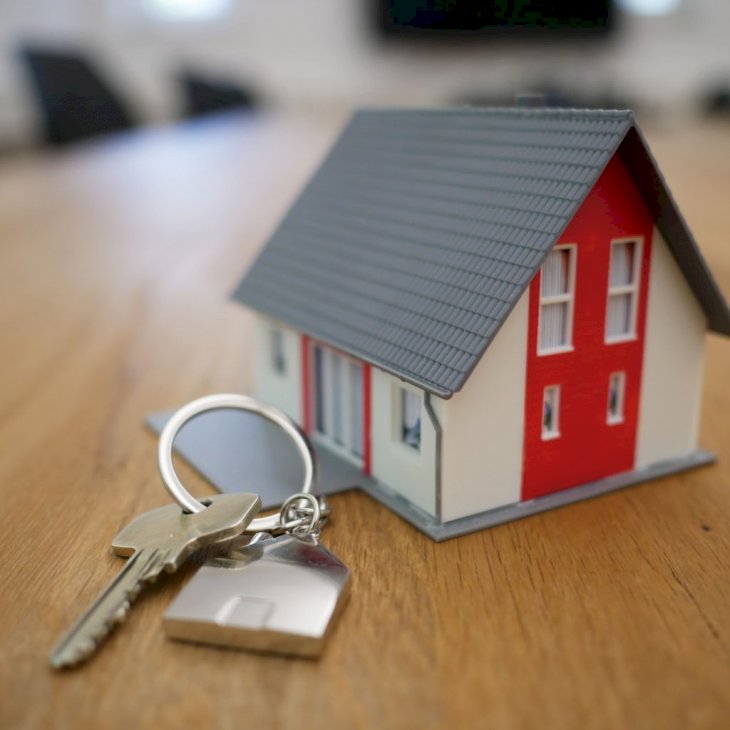
Tips for First-Time Home Buyers: Everything You Need To Know
Every year, a new wave of future homeowners enter the market place looking for their perfect first home. Often considered a coming of age milestone, buying your first home is a sign of financial success and stability in your life.
However, the enormous commitment is extremely difficult to make. Buying a home will probably be the largest purchase most people have made thus making the experience a tad scary. However, to help prepare you for the process, here are some steps to follow and what to avoid when purchasing your first home.

Shutterstock
1. Are You Ready?
If you are contemplating the possibility of buying a home, be honest with yourself on whether or not you are really prepared to make the commitment. The process can be extremely expensive as you will now be responsible for expenses like home repairs, utility costs, garbage pickup, water, and electricity as well as taxes and insurance related to your home.
It is highly recommended that you should not be in debt or reduce your debt before making the commitment to purchase a home and establish an emergency savings fund. If you are uncertain if you will manage to stick to the monthly payments for the mortgage of a home, a great tip is to start putting the amount of money you would be willing to spend on a mortgage into a savings and monitor if you can maintain the budget it would require.

Photo by Tierra Mallorca on Unsplash
2. Look At Loan Options
It is very rare for first-time homeowners to buy their house cash. Most people rely on a loan when they make their purchase. Therefore it is important to shop around and get pre-approved for a mortgage.
A pre-approved loan will also help set up a budget. Consider using a mortgage broker to access several different loan companies and programs to find the best rates. Also, contact your local bank or credit union to explore what options they have available as well.

Shutterstock
3. Explore Adjustable-rate vs. Fixed-rate Mortgages
There are two types of mortgages that are offered for home purchases. It is important to explore both options. An adjustable-rate mortgage means the interest rate will vary over time. It will start with a lower initial rate but the rate may rise as market conditions change. This will lead to a higher monthly repayment.
On the other hand, a fixed-rate mortgage remains the same. This type of mortgage is a more stable option and allows you to effectively budget your monthly payments. However, should the market rate fall, you will be losing out but if the rates fall drastically there might be a possibility of refinancing in order to negotiate a lower rate.

Shutterstock
Homeowners are warned to avoid a third option, called a hybrid mortgage. This type of loan offers a low fixed rate at first before switching to a higher variable rate resulting in the person paying a larger payment than they initially expected.
Homeowners are warned to avoid a third option, called a hybrid mortgage. This type of loan offers a low fixed rate at first before switching to a higher variable rate resulting in the person paying a larger payment than they initially expected.

Shutterstock
4. Prepare A Down Payment
Another great tip to reduce the amount you will owe on your home is to save up for a substantial down payment, However, if you can only pay less than 20% of the cost of your home, you may be required to pay private mortgage insurance (PMI). However do not panic, it is often smart to budget for the possible cost of PMI when planning your purchase.
Some buyers opt to use creative financing to cover the down payment. However, it is smart to be cautious when exploring these options. The best option is to save up for a down payment instead.

Photo by Helloquence on Unsplash
5. Set A Budget
Most importantly, once you have saved up for your down payment and explored your mortgage options, set a budget. It is recommended that your budget for your mortgage, taxes, and insurance, should only be about 25 to 30 percent of your income.
Some experts advise that you should budget for a home that will not cost more than two and a half times your annual salary. Opting for a smaller house within your budget will allow you to continue to meet your other obligations without stressing you or your finances out.